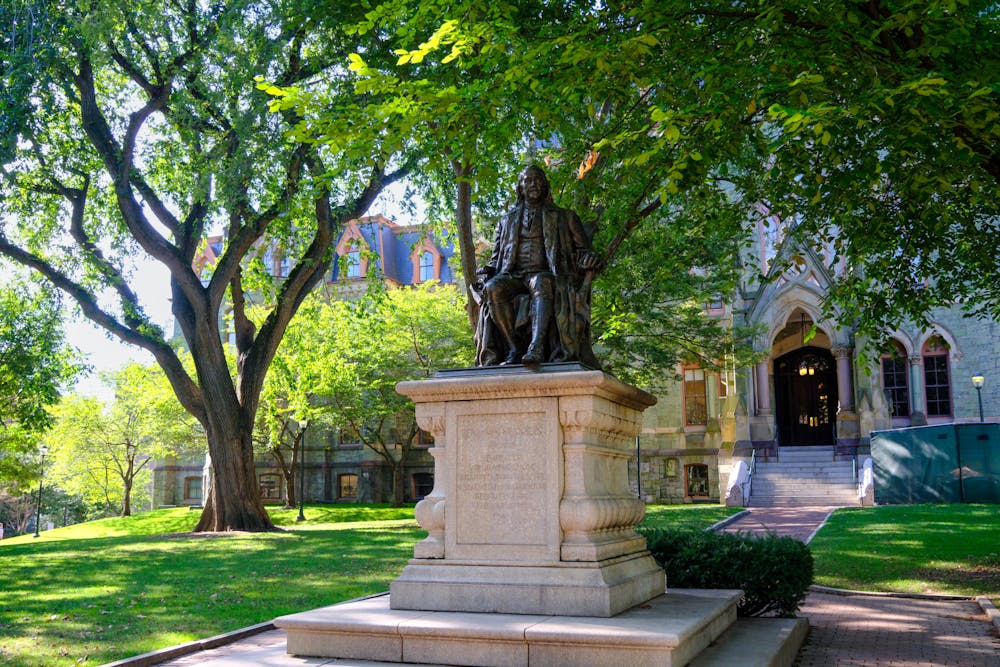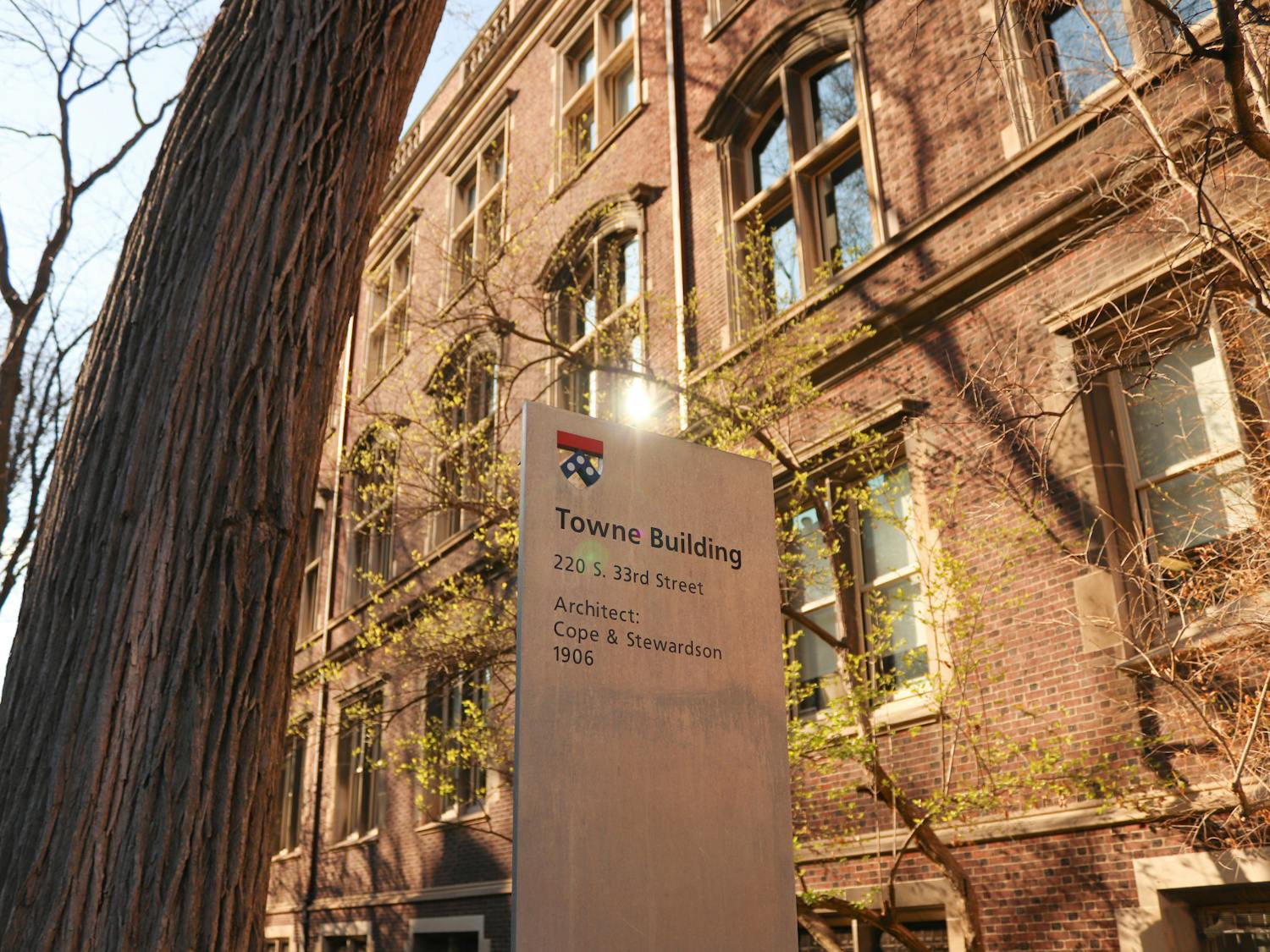The Penn administration’s response to campus activism has changed drastically in response to a year filled with protests.
Most activism during the 2023-24 academic year revolved around the University’s response to the Israel-Hamas war, but the year also brought on a new era of labor organizing. As campus tensions increased during the spring semester, Penn administrators’ responses to the unrest changed constantly, but included disciplinary action and University policy changes.
The largest and longest demonstration this year was a 16-day Gaza Solidarity Encampment on College Green, which students, faculty, and community members from Penn, Temple University, Drexel University, and greater Philadelphia set up on April 25. The encampment's demands included that Penn divest from "corporations that profit from Israel’s war on Gaza and occupation in Palestine,” disclose its financial holdings under the Associated Investments Fund, and defend Palestinian students.
The encampment drew discontent from pro-Israel students, who held several counter-demonstrations near College Green. While negotiating with encampment organizers, Penn began disciplinary proceedings for students on April 30, placing six students on mandatory leaves of absence on May 9.
In late April, Penn Muslim Students Association and the Penn Israel Public Affairs Committee circulated petitions for dueling referendums on whether Penn should divest from Israel. The majority of participating undergraduates in the MSA’s referendum voted in favor of divestment, and Jameson later reiterated Penn’s vocal opposition to the Boycott, Divestment, and Sanctions movement.
On May 10, Philadelphia and Penn Police officers swept the encampment and arrested 33 protesters, including nine Penn students. That night, organizers protested the arrests and entered the gates of the President's House on Walnut Street.
One week later, as Alumni Weekend and Commencement celebrations began, pro-Palestinian activists attempted to occupy Fisher-Bennett Hall. 19 protesters were arrested, including seven Penn students. Penn officials later barred multiple seniors from the College of Arts and Sciences graduation ceremony due to their involvement in encampment-related disciplinary hearings.
On June 6, Penn implemented new temporary campus demonstration guidelines, explicitly banning encampments and other protest tactics — marking one of the strongest administrative responses to protests.
RELATED:
Overwhelming majority of Penn graduate student workers vote to unionize
The Graduation Issue 2024: Penn’s Gaza Solidarity Encampment, from beginning to end
On July 2, local pro-Palestinian groups reported that Penn suspended four student activists, the University’s most significant disciplinary response to date.
The Gaza Solidarity Encampment was not the only protest held in response to the Israel-Hamas War. In February, Penn administrators interrupted a pro-Palestinian study-in organized by the Freedom School, later disciplining five students.
On March 9, Penn faculty sued the University, alleging a pattern of “McCarthyism” for preventing speech opposing Israel. The United States District Court for the Eastern District of Pennsylvania dismissed the lawsuit in June.
Later in March, the Center for Community Standards and Accountability opened an investigation into Penn Students Against the Occupation of Palestine and prohibited it from organizing events. Penn later revoked PAO’s status as a registered student organization, and its reinstatment became a core demand for pro-Palestinian organizers.
Activism surrounding Penn's response to the Israel-Palestine conflict also took place in the fall, intensifying after the Hamas Oct. 7 attack on Israel. Penn Hillel and organizations including the MSA and PAO hosted solidarity events, and administrators condemned the attack and instances of on-campus antisemitism.
On Nov. 14, the Freedom School for Palestine — a collective of Penn affiliates — began a sit-in in Houston Hall to protest the University’s response to the Israel-Hamas war. The sit-in continued through the end of the fall semester.
In late November, the University denied progressive Jewish group Penn Chavurah’s request to screen the film “Israelism” — a documentary exploring how American Jewish attitudes towards Israel have changed — citing safety concerns from Penn’s Division of Public Safety. The University had initially approved the screening earlier in the semester, and postponed it due to the Oct. 7 attack. Students held a rally on Nov. 27 protesting the "censorship" of the film, and the screening ultimately took place the next day.
On Dec. 3, a pro-Palestinian march hosted in conjunction with a vigil for the University City Townhomes — an affordable housing complex demolished by the city in March — culminated in a 500-person rally at 40th and Market streets. Several protesters graffitied businesses on Walnut Street.
The same week, 2024 College graduate Eyal Yakoby and College sophomore Jordan Davis sued Penn, alleging an insufficient response to campus antisemitism. Penn has since filed two motions to dismiss the lawsuit.
On Dec. 5, following weeks of backlash, Magill testified in front of the United States House Committee on Education and the Workforce. When Rep. Elise Stefanik (R-N.Y.) asked if calls for the genocide of Jews constitute hate speech, Magill responded that it was a "context-dependent" question. Her response went viral and sparked national backlash.
Four days later, Magill and then-Board of Trustees Chair Scott Bok resigned. Penn appointed former Perelman School of Medicine Dean Larry Jameson interim president on Dec. 12. He will remain in the role through the 2025-26 academic year.
The war in the Middle East is not the only issue around which Penn students have organized. A wave of campus labor organization began when Penn’s resident advisors and graduate resident advisors unionized in late September. They have since negotiated with Penn, accused the University of bad-faith negotiations, ratified their first contract, and filed a complaint alleging contract violations.
Meanwhile, Penn’s graduate student workers formed the largest union at Penn, Penn Libraries staff members held a unionization election, and Penn Medicine residents campaigned for higher wages and improved benefits.









